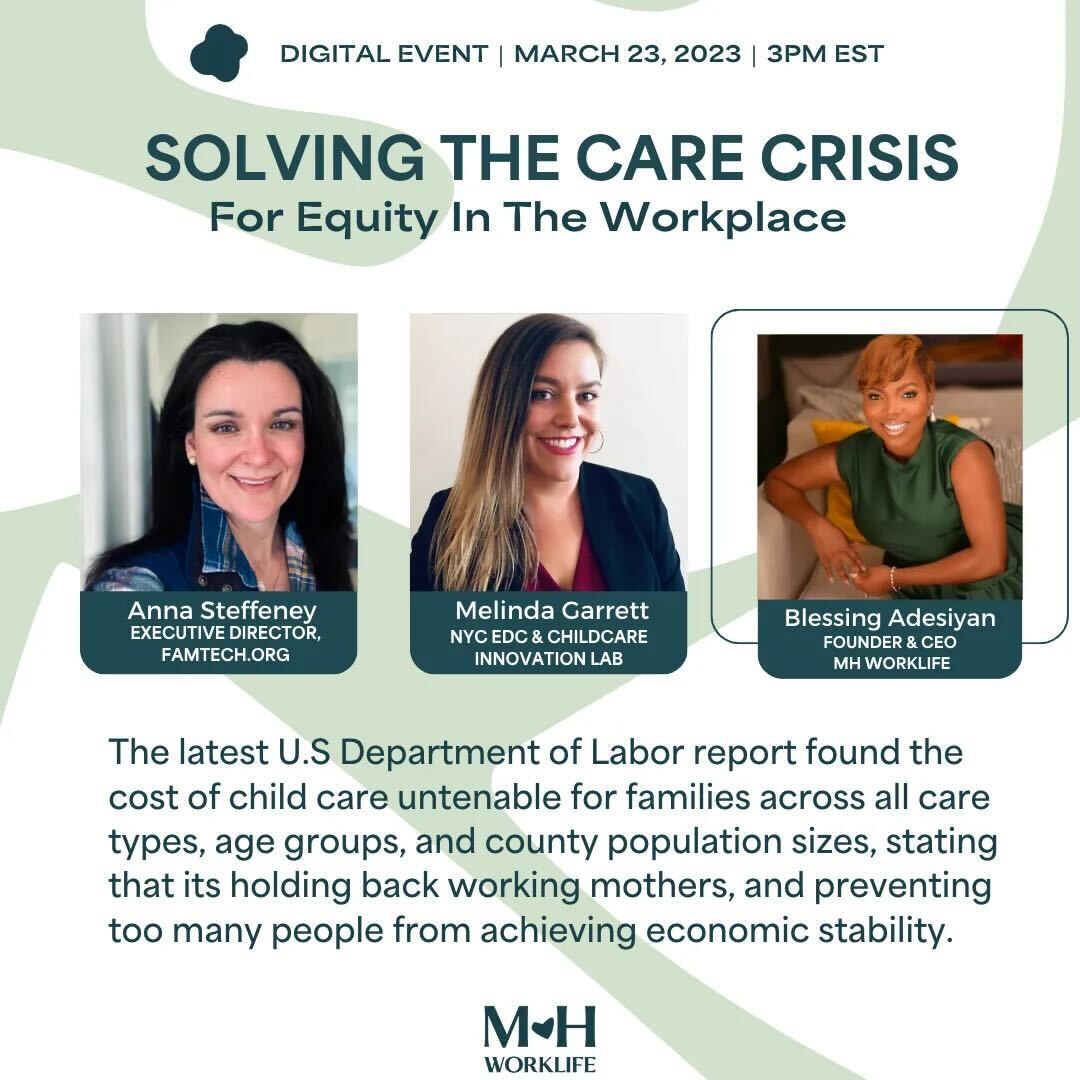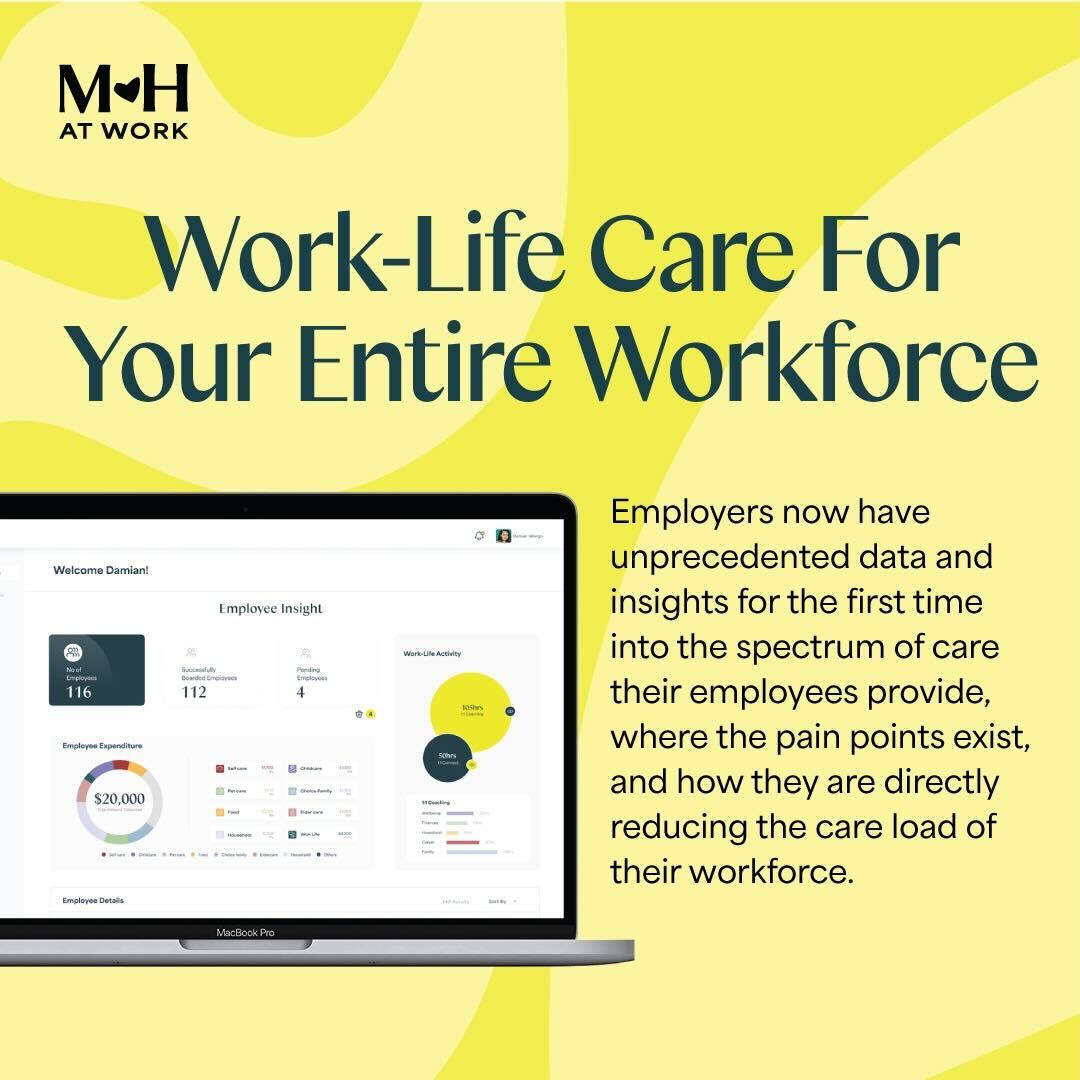This newsletter is presented by Indeed.
You know the feeling: Your stomach churns. Your pulse races. A headache looms.
No, you aren’t sick. You’re at work and you’re getting a call from the school nurse, because your kid is sick. Again.
That sinking dread has become far too familiar for working parents in the last year or so. Pediatric emergency rooms have been overwhelmed due to an unprecedented surge in severe cases of common childhood viruses and infections, from RSV to strep throat. Even mild cases have kept children at home for days and weeks at a time.
The problem was so severe last fall that the number of parents missing work to care for their kids reached an all-time high. More than 100,000 adults missed work to care for their kids in October, according to the U.S. Bureau of Labor and Statistics. More parents missed work in October than at the height of the pandemic, The Washington Post reported.
The good news is illnesses tend to recede in the spring. The bad news is parents still don’t have the structural support we need. We routinely spend hours on the phone or scouring store shelves to find the medications they need. While supplies of children’s Tylenol and Ibuprofen have stabilized after last year’s shortages, they can still be hard to find in some locations. Same goes for children’s antibiotics. Now, there’s a national shortage of aerosolized albuterol, which is used in hospitals to treat children with asthma.
If our kids get severely ill, there’s also no guarantee our nearest hospital will have a bed available. Pediatric hospital beds are still in high demand, because hospitals have cut back on their pediatric units in recent years, and nursing shortages are leaving hospitals understaffed.
It’s putting working parents in a precarious position, since there aren’t many protections in America for people who have to miss work to care for a sick child. Currently, 10 states guarantee working parents the right to use earned sick time to care for their children when they are sick, according to A Better Balance. (Those states are Arizona, California, Connecticut, Maryland, Massachusetts, Oregon, New Jersey, Rhode Island, Vermont, and Washington.)
Many employers allow parents to use their time off to care for sick kids, but the average full-time employee in the U.S. only gets seven days of paid sick leave. It’s frighteningly easy to burn through seven days of sick leave when you’re a parent, especially since many schools and daycares still have strict illness policies in place post-pandemic.
One study found that nearly one in 4 parents reported last year they were fired from their jobs due to the breakdown of child care for their kids. Another 26 percent of parents said they voluntarily quit because of child care problems.
The rise of remote work has helped ease some of the strain. Parents who work from home can tackle some tasks while keeping an eye on a feverish toddler—but it’s not easy. As parents learned during the pandemic, the perpetual stress of simultaneously conquering work and home duties can lead to burnout, anxiety and worse.
Parents need federally guaranteed paid sick leave, and stronger laws to prevent employers from retaliating against working parents who miss work to care for sick children. In the meantime, we asked the experts at Indeed what working parents do when another stomach bug or respiratory virus hits their home. Here are their great suggestions:
The Fix: 3 Ways to Make Sick Days Smoother
Taking care of a sick child can be a bummer for both kid and parent, especially when taking a day off isn’t an option. On top of having to look after your child, you also have to manage work projects that don’t stop just because a virus is going around. Is it possible to successfully nurse a sick child while continuing to work? Definitely! But you’ll need to properly prepare, and, perhaps most importantly, give yourself grace.
Enlist extra help: Parenting a sick child alone is never easy. If you have access to support, don’t hesitate to call for help. If your spouse has some work flexibility, split parenting tasks equally, such as picking up your kid from school and going to the doctor. (Create a system for determining who is on duty each day. For example: The parent with the fewest meetings stays home.) A relative who lives nearby or a close neighbor might also be happy to take some of the burden off your shoulders. No other options? Enlist a last-minute babysitter. Pro tip: Don’t forget to ask your employer if they offer any back-up child care benefits.
Keep a supply of “sick kid” essentials: This year, shortages have plagued parents, who have struggled to find everything from children’s Tylenol to infant formula. Keep your sanity when sickness hits your household by stocking up ahead of time on essential medicines, as well as other sick-day supplies. This might include any snacks your child can eat while sick, contact information for your child’s pediatrician, a change of clothes, and an iPad. (Now is not the time to worry about screen limits.) You’ll thank yourself later when your 9 a.m. meeting is about to start and you have to drop off your child at Grandma’s.
Communicate with your team: If you won’t be able to complete all your tasks for the day, let your team and any POCs know. This will help them plan around your absence, so your manager is able to reallocate work, move meetings, and inform other necessary members of your projects. Don’t be ashamed to take the day off and don’t apologize. You wouldn’t apologize for using your health savings account, right? Your PTO is a benefit, too. Succinctly explain the situation, and, if necessary, how you plan to cover any projects or meetings due that day. Your colleagues will understand. We all need flexibility to take care of our personal emergencies. These things happen and are completely out of our control.
JOIN US:
Want real solutions for solving the child care crisis? Join this crucial conversation on March 23 by registering here:
https://us06web.zoom.us/meeting/register/tZUpdO6sqzouH9wswjvTbU9zgpKQ7iIVOWTi
GET THE WORK-LIFE WALLET:
Stop wasting money. Redirect cash from ineffective EAP programs and directly empower your employees to meet their unique work-life needs. With Mother Honestly’s NEW work-life wallet, employees can access support for an array of work-life needs, including child care, elder care, pet care, self care, household chores and more. Employees link their debit card or bank account, and we screen and qualify work-life related expenses for reimbursement within seconds. Learn how your company can support caregivers with our Work-Life Wallet.
LOVE TO SEE IT
Food processing giant Hormel is building a $5 million onsite child care center at its headquarters in Austin, Minnesota. It is expected to serve up to 130 children of employees and community members, and is intended to make it easier to hire and retain working parents, who have struggled to find child care in the area.
HATE TO SEE IT
Maternal mortality in the U.S. increased by 40% in 2021, to the highest level since 1965. Black women have have the highest mortality rates—2.6 times greater white women's. More than 80% of these deaths are preventable, according to the CDC's latest compilation of data.






